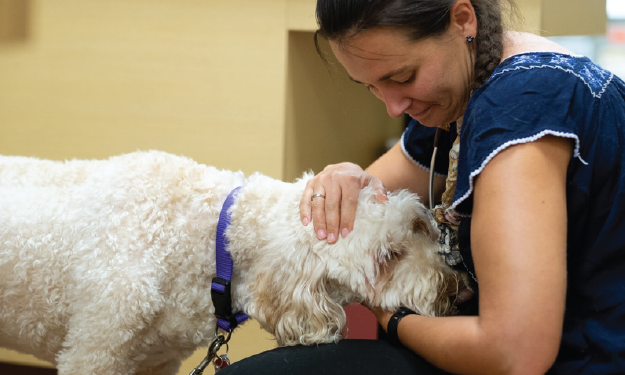Everything You Need to Know About Palladia: Anti-Cancer Medication for Dogs

What is Palladia?
Palladia (Toceranib phosphate) is a drug that was approved in June 2009 by the FDA as an anti-cancer agent in dogs for the management of mast cell tumor. Off-label usage of this medication is also possible for the management of a variety of tumor types and is also used for feline cancers. Palladia may help shrink your pet’s tumor, as it works by blocking the activity of key receptors important for the development of blood vessels that supply tumors, as well as receptors critical for tumor survival. Palladia may be combined with other forms of therapy (surgery, steroids, NSAIDs, radiation therapy, or conventional chemotherapy) as well as a multi-directional approach to the treatment of cancer.
How Will Palladia Affect My Pet?
Palladia may help stabilize or possibly decrease the size of your pet’s tumor. Like other cancer treatments, it can be difficult to predict whether your pet’s tumor will respond to Palladia, and if it does respond, how long it will remain responsive to Palladia. Regular checkups and blood work by your oncologist are necessary to determine whether your pet is responding as expected, and to decide whether your pet should continue to receive Palladia.
The most common side effects seen with Palladia include diarrhea, decrease or loss of appetite, lameness, weight loss, and blood in the stool. Other possible side effects include suppression of the bone marrow, seen with a decrease in white blood cell, red blood cell or platelet counts, and elevated liver and/or kidney values. Stop Palladia immediately and contact your oncologist if you notice any of the following changes in your dog: refusal to eat, vomiting or diarrhea (especially if more than twice in 24 hours), black tarry stools, bright red blood in stools or vomit, unexplained bruising or bleeding, or any other changes that concern you.
How is Palladia Administered?
Palladia is an oral medication that comes in tablet form. It is generally given orally (by mouth) at home. The tablets should not be split or broken and gloves should be worn for administration. Make sure your oncologist is aware of all other medications that your pet is receiving, including vitamins or supplements. Your dog or cat should not receive Palladia if she is pregnant, nursing, or is intended to be used for breeding purposes.
What Do I Need to Know to Handle Palladia Safely?
- Palladia is an anti-cancer drug, because of this extra care must be taken when handling the tablets, giving the drug to your pet, and cleaning up after your pet.
- You should wear gloves when handling Palladia, as well as when coming in contact with your pet’s urine, feces or vomit.
- You should keep Palladia in a secure storage area out of reach of pets and children.
- Children should not come in contact with Palladia. Keep children away from feces, urine or vomit of treated pets.
- If you are pregnant, a nursing mother, or may become pregnant and you choose to administer Palladia to your pet, we recommend having another person in the household administer this medication.
- If Palladia is accidentally ingested by you or anyone else, seek medical advice immediately. In cases of accidental human ingestion of Palladia, a person may experience gastrointestinal discomfort, including vomiting or diarrhea.